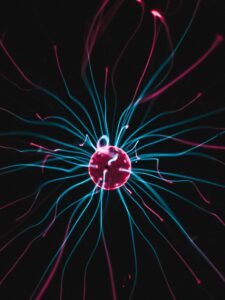Table of Contents
Important Concepts of Chemistry JEE-2023
Chemical compositions, reactions, mechanisms, chain reactions, and question quality are all nearly the same. The identical type of questions has been asked in JEE Exams several times, with the only variable being the level of difficulty. The majority of the questions in JEE Main 2020 were of a moderate difficulty level. There were a few tough questions, but they were simply handled with good fundamentals and basics. The JEE Chemistry Syllabus contains approximately 25 topics.
Important Chemistry Chapters for JEE Main And Advanced Exams
Because the majority of topics are theoretical and there is always the possibility of forgetting anything, it is critical to read and revise as much as possible in order to prepare effectively.
1. Physical Chemistry: Important Chapters for JEE Main and Advanced:
- a. Mole Concept: This is one of the most fundamental and crucial ideas in physical chemistry, and it requires thorough preparation in order to build a thorough knowledge of the entire unit. Several questions in JEE Exams come from this subject, although they can be simply solved if you understand the fundamentals.
- b. Atomic Structure: Around 2 to 3 problems from this unit are typically asked in JEE Exams each year, and this unit has no direct relevance with the Mole Concept. Electrochemistry, Thermodynamics, Equilibrium, Kinetics, and other disciplines are largely developed from mole principles and have approximately identical weightage.
2. Important chapters in inorganic chemistry for JEE Main and Advanced:
Inorganic Chemistry covers a wide range of issues, all of which are equally significant. As a result, don’t skip any of the topics in this unit because it is a high-scoring subject. Because there are so many different compounds, you’ll need to learn about their preparation techniques, applications, chemical reactions, and so on.
3. Chemistry of Organic Matter:
If you are familiar with the general subjects in organic chemistry, such as nucleophiles, electrophiles, types of reactions, basicity, acidity, and so on, you may easily understand the rest of organic chemistry. The broad organic chemistry section of the JEE syllabus includes these topics.
a. Named Reactions: In organic chemistry, there are a number of typically named reactions, and you should be familiar with all of them, as well as their mechanisms so that you can solve any comparable sort of problem posed on the exam.
b. Organic Synthesis: This is an important and conceptual aspect of organic chemistry, and every year in JEE Exams, around 2 to 3 questions are asked from this section, which includes writing specific steps to synthesise any given compound using the provided set of reagents with the least amount of effort possible. You may be required to write the missing compounds in any step of the synthesis. As a result, understanding some of the most frequent chemical reactions is critical.
IIT JEE Chemistry Important Topics
JEE Main 2022 – Chemistry Weightage
| Topics | No of Questions | Marks |
| Transition Elements and Coordination Chemistry | 3 | 12 |
| Periodic table and Representative Elements | 3 | 12 |
| Thermodynamics And Gaseous State | 2 | 8 |
| Atomic Structure | 2 | 8 |
| Chemical Bonding | 2 | 8 |
| Chemical And Ionic Equilibrium | 2 | 8 |
| Solid State And Surface Chemistry | 2 | 8 |
| Nuclear Chemistry And Environment | 2 | 8 |
| Mole Concept | 1 | 4 |
| Redox Reaction | 1 | 4 |
| Electrochemistry | 1 | 4 |
| Chemical Kinetics | 1 | 4 |
| Solution and Colligative Properties | 1 | 4 |
| General Organic Chemistry | 1 | 4 |
| Stereochemistry | 1 | 4 |
| Hydrocarbon | 1 | 4 |
| Alkyl Halides | 1 | 4 |
| Carboxylic Acid and their Derivatives | 1 | 4 |
| Carbohydrates, amino acid, and Polymers | 1 | 4 |
| Aromatic Compounds | 1 | 4 |
JEE Main 2023 – Most Important Topics of Chemistry
Below we have provided the most important chapters of chemistry. The students preparing for JEE Main 2022 must go through all the chapters listed below:
Coordination Compounds
- Addition Compounds or Molecular Compounds
- Terminologies Related to Coordination Compounds
- Types of Ligands – 1
- Oxidation Number
- Coordination Number
Purification and Characterisation of Organic Compounds
- Sublimation and Crystallisation
- Distillation under reduced pressure and Steam distillation
- Chromatography
- Test for Halogens
- Duma’s Method
Some Basic Principles of Organic Chemistry
- Functional Group
- IUPAC Nomenclature – 1
- Carbocations
- Carbanions
- Alkyl Free Radicals
Organic Compounds containing Halogens
- Nature of C-X bond and Physical Properties
- Reaction with PCl5, PCl3, SOCl2 and HX
- Strong and Weak Bases
- SN2 Reaction
- SN1 Reaction
Organic Compounds containing Oxygen
- Grignard Reagent – 1
- Reduction by LiAlH4 and NaBH4
- Acylation and Oxidation of Alcohols
- The reaction of Phenols with dil. HNO3
- Preparation of Aldehydes
Chemistry in Everyday Life
- Analgesics
- Antibiotics
- Preservatives
Principles Related to Practical Chemistry
- Preliminary Test with Dilute Sulphuric Acid (Systematic Analysis of Anions):
- Analysis of Cations
Chemical Bonding and Molecular Structure
- Lewis Representation of Simple Molecules (Lewis Structure)
- Limitations of The Octet Rule
- Bond Parameters: length, angle, energy, strength
- Fazan’s Rule and Covalent Character in Ionic Bond
- p?-p? and p?-d? Bonding
Classification of Elements and Periodic table
- Long-form of Modern periodic table
- Classification of Elements: s-block
- Atomic Radius of Elements
- Variation of Atomic Radii and ionic radii
- Ionisation Enthalpy or Ionisation Potential
Some basic concepts in chemistry
- Empirical Formula And Molecular Formula
- Mole concept and molar mass
- Stoichiometry, Stoichiometric Calculations And Limiting Reagent
- Reactions in Solutions
States of matter
- The Gas Laws- Boyle’s Law (Pressure-Volume Relationship)
- Intermolecular Forces
- Ideal Gas Equation
- Dalton’s Law of Partial Pressure
- Graham’s Law of Diffusion
Atomic Structure
- Photoelectric effect
- Line spectrum of hydrogen
- Radius, velocity, and the energy of nth Bohr orbital
- De Broglie wavelength
- Heisenberg’s uncertainty principle
Chemical Thermodynamics
- Path, State Function, Types Of Process
- Reversible, Irreversible, Polytropic Process
- First Law Or Law Of Conservation Of Energy
- Isothermal Reversible And Isothermal Irreversible
- Adiabatic Reversible And Irreversible Expansion
Redox Reaction and Electrochemistry
- Balancing of Redox Reactions
- Oxidation Number and Oxidation State
- Types of Redox Reactions
- Balancing of Redox Reaction: Ion Electrode Method
- Balancing of Disproportionation Redox Reaction: Ion Electrode Method
General Principle and process of Isolation of metals
- Froth Floatation Process
- Leaching: Chemical Method
- Conversion of ore into oxide – Calcination and Roasting
- Electrolytic Refining
- Vapour Phase Refining
S – Block Elements (Alkali and Alkaline Earth Metals)
- Chemical Properties of Alkali Metals – 1
- Chemical Properties of Alkali Metals – 2
- Anomalous Behaviour of Lithium
- Halides of Alkali Metals
- Sodium Chloride and Sodium Hydroxide
d – and f – BLOCK ELEMENTS
- Screening Effect and Lanthanoid Contraction
- Atomic Size/Radii
- Ionisation Energy
- Oxidation State
- Magnetic Properties and Character
JEE Advanced Crash Course – JEE Advanced Crash Course 2023
FAQs
What are the most significant chemistry topics in JEE Main 2022?
Purification and Characterization of Organic Compounds, Chemical Thermodynamics, Chemical Bonding, Classification of Elements and Periodicity in Properties, Hydrogen, Organic Compounds containing Halogens, and Molecular Structure are all important topics in Chemistry in JEE Main 2022.
Is Coordination Chemistry and Transition Elements a significant topic in JEE Main Chemistry 2022?
Transition Elements and Coordination Chemistry is a crucial topic in JEE Main Chemistry 2022.
Is the Periodic Table and Representative Element a significant topic in JEE Main Chemistry 2022?
Yes, the Periodic Table and Representative Element are key topics in JEE Main 2022 Chemistry.








